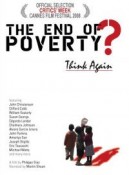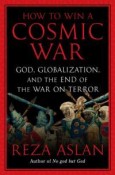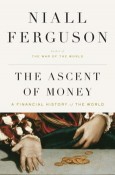Q&A: PHILLIPE DIAZ – Writer and Documentary Director
Written on November 30th, 2009 |
Aired 11/22/09
PHILLIPE DIAZ is writer director of a new documentary THE END OF POVERTY that exposes the roots of the south’s poverty first in colonialism and then in the policies of the World Bank, IMF and the WTO.
The film features: Nobel prize winners in economics Amartya Sen and Joseph Stiglitz; expert authors Susan George, Eric Toussaint, John Perkins, Chalmers Johnson, government ministers such as Bolivia’s Vice President Alvaro Garcia Linera, and leaders of social movements in Bolivia, Brazil, Venezuela, Kenya and Tanzania.
THE END OF POVERTY’s opening line by narrator Martin Sheen: “Why, in a world of so much wealth, do we still have so much poverty, where billions of people live on less than one dollar a day?” According to writer-director PHILLIPE DIAZ, the ultimate goal of the film is to change the dialogue around the poverty debate from "poverty is a shame," to "poverty exists for a reason."
Born in Paris France, PHILIPPE DIAZ studied Philosophy at the Sorbonne in Paris, and began his film career as a director in 1980. He produced a number of features both in France and the US, and in 2003, with a consortium of partners he created Cinema Libre Studio, to provide an alternative structure for intelligent, independent films. His directorial debut, THE EMPIRE IN AFRICA won the Grand Jury Award for Best Documentary Feature at Slamdance 2006.
According to Diaz, “The end of greed on Wall Street will not end poverty in the world. The problem is much deeper than that; it is centuries old. Our economic system since colonial times requires cheap labor and cheap resources from the global South to succeed and to finance our lifestyle in the North. Without changing that we will never alleviate poverty.“
Q&A: LESTER BROWN, Founder of Worldwatch and Earth Policy Institute
Written on October 22nd, 2009 |
Aired 10/20/09
In Lester Brown's new book, PLAN B 4.0: MOBILIZING TO SAVE CIVILIZATION, Brown lays out the symptoms, the diagnosis, and the cure. He estimates that we could solve all the world's greatest problems for $200 billion a year - less than half the US defense budget.
PLAN B 4.0 is a comprehensive plan for reversing the trends that are undermining our future. Its four overriding goals are to stabilize climate, stabilize population, eradicate poverty, and restore the earth's damaged ecosystems. Failure to reach any one of these goals will likely mean failure to reach the others as well.
Q&A: REZA ASLAN, Author
Written on May 30th, 2009 |
Aired 05/19/09
REZA ASLAN is the author of "NO GOD BUT GOD" and his new book, "HOW TO WIN A COSMIC WAR: God, Globalization and the End of the War on Terror"
REZA ASLAN says the only way to win a cosmic war is not to engage in one.
That may seem obvious to some, but he's also saying that unless we recognize that we've been pulled into a cosmic war -- what that means and how it changes things -- we haven't got a chance of "winning" or even making the best of the situation.
"A cosmic war is a battle not between armies or nations, but between the forces of good and evil. The ultimate goal of a cosmic war is to vanquish evil itself, which ensures that a cosmic war remains an absolute, eternal, and ultimately unwinnable conflict. Cosmic wars are fought not over land or politics but over identity."
1900 - 1/2 of world's population identified as members of major religions
2000 - 2/3 of world's population identified as members of major religions
Aslan believes the days of wars between nation states are over. When globalization frees people from national identity, it's replaced by other identities - especially religion. We must strip the conflict between Islam and the West of its religious connotations, and we must address the actual grievances that fuel the Jihadist movement.
A recent Gallup poll (see below) appears to back him up. According to AP: "Joblessness and poverty are a more potent source of tension between Muslims and wider European and U.S. society than religious differences, [according to] one of the first major studies of Muslim integration since the Sept. 11 terror attacks."
REZA ASLAN has a fairly unique resume. Born in Iran, emigrated wih his family to Enid, Oklahoma as a child. Degrees in religion from UC Santa Clara, UC Santa Barbara, and Harvard Divinity School, as well as an MFA from the Iowa Writers Program. His first book, NO GOD BUT GOD: The Origins, Evolution, and Future of Islam offers more than a history - and the guy can write.
The first time I interviewed him was just after Hamas had won the Palestinian election. We both hoped that having to actually run things would move Hamas in a positive direction. The US, Israel, and others weren't willing to find out.
We pick up the conversation this week, looking at the lessons of history, the lessons of the recent past, and hopes for the future.
Q&A: NIALL FERGUSON, Columnist and Author
Written on January 29th, 2009 |
Aired 01/27/09
NIALL FERGUSON is Lawrence A. Tisch Professor of History at Harvard University, a Senior Research Fellow at Jesus College, Oxford, a Senior Fellow of the Hoover Institution at Stanford, an op ed columnist for the LA Times, and the other of several books, the newest is THE ASCENT OF MONEY: A Financial History of the World.
In THE ASCENT OF MONEY, NIALL FERGUSON says that finance is the foundation of human progress, and that financial history is the essential back-story behind all history.
He explains how banks provided the material basis for the the Italian Renaissance, while the bond market was the decisive factor in conflicts from the Seven Years' War to the American Civil War. Ferguson points out the origins of the French Revolution in a stock market bubble, and shows how a financial revolution is propelling the world's most populous country from poverty to power in a single generation.
The single most important lesson of financial history is that sooner or later every bubble bursts - sooner or later the bearish sellers outnumber the bullish buyers - sooner or later greed flips into fear.
We'll discuss how history can be helpful at a moment like this. And, what can it tell us about our current crisis and the way out?
